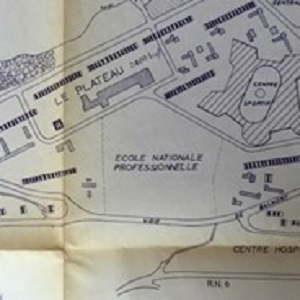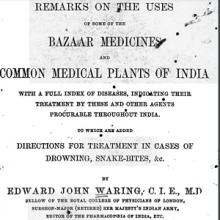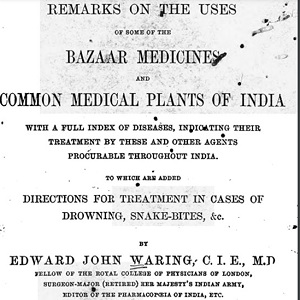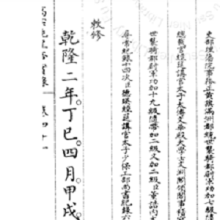Science/ Technology

Social Housing development in France
In addition to La Duchère, other social housing developments in greater Lyon included Les Minguettes in Vénissieux, where 9,200 units for 35,000 residents were constructed between 1966 and 1973, and the 8,300-unit Mas du Taureau, built between 1970 and 1980 (in addition to La Grappinière, with a

Plans for Social Housing in France
Most of the new housing was constructed on cities’ fringes, or on adjacent farmland just outside the central city, by a quasi-public company known by its French initials SCIC (Société central immobilière de la Caisse des dépôts, or Central Real Estate Company of the Deposits and Consignments Fund

Short Teaching Module: Teaching the Intersection of Gender and Race through Colonial Medical Texts
This module focuses on medical texts written by British doctors working in India and their gendered and racial categorization of ailments and diseases.

Edward Waring on Borax as medicine in India
Waring published the book in several Indian languages and another publication Supplement to the Pharmacopoeia of India, written by Moodeen Sherriff, an Indian doctor working for the colonial administration, provided the translations and medical plant knowledge in 14 different languages.

Edward Waring on Assafœtida as medicine in India
Medical publications appealed to a medical and popular audience in the hopes of providing surgeons with tips on how to obtain similar drugs and medicine in local bazaars which could not be obtained elsewhere.

Page from the Pentaglot Manchu Glossary
The Qing empire was founded by the Manchus, and they used a language and a script that were distinct from those used in China Proper.

Page from Qing Veritable Records
The Qing court used a twelve-month lunar calendar based on the sexagenary cycle, distinct from the solar Gregorian calendar used by most of the world today. This page from the Qing Veritable Records (Da Qing shilu) provides a good example.

Short Teaching Module: Translation and a World History of the Qing Empire
In 1953, L. P. Hartley famously wrote: “The past is a foreign country: they do things differently there." His observation is particularly relevant for world historians, who have to engage in translation projects to bridge the distance between our world and the worlds of our historical actors.

Togo farm families cracking oil palm kernels
This photo was part of a short photo series documenting palm oil production in the German colonies in Africa, included in a report by a special oil commission of the German Colonial Society (Deutsche Kolonialgesellschaft) in 1913.

Ideal ration recipe
This is one page out of a notebook kept by Stephen Robinson Parsons, a somewhat improvement-minded farmer in South Paris, Maine. Around 1896, Stephen copied into his fact book an ideal ration: